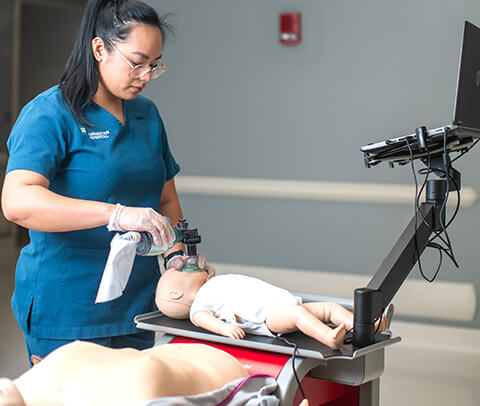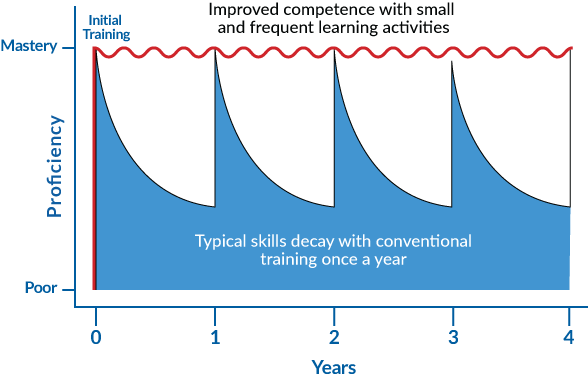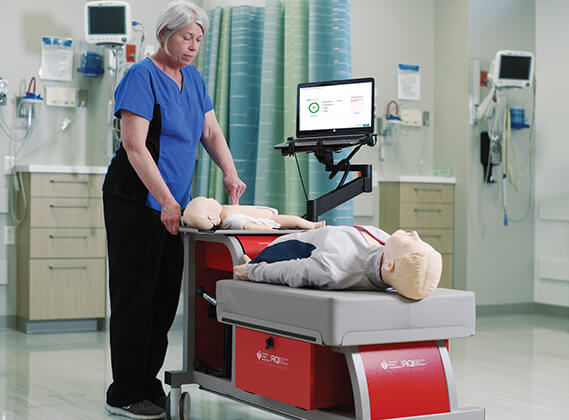Resuscitation Quality Improvement® (RQI®) program in Canada
A self-guided, evidence-based CPR training solution
Why RQI?
Many healthcare providers do not perform CPR as a normal part of their daily practice, and some may rarely perform CPR after completing their training course. As CPR compression and ventilation skills degrade from lack of use and practice, so does the overall effectiveness of CPR. As the quality of CPR degrades, this can literally become a matter of life and death for patients. Fortunately, you don’t have to invest hours every day to improve and maintain your proficiency. Brief and regular practice in CPR – low-dose/high-frequency education – has been shown to lead to better skills.
The American Heart Association’s (AHA) Resuscitation Quality Improvement (RQI) programs, supported and endorsed by the Heart and Stroke Foundation of Canada as a resuscitation quality improvement program, offer:
- a high-reliability platform for simulation-based mastery learning that measures and verifies competence,
- low-dose, high-frequency quality improvement sessions to prevent skill decay,
- standardized skills assessment featuring real-time, audiovisual corrective feedback and performance summaries for high-quality CPR skills,
- smart adaptive eLearning and self-directed skills assessment that support safely distanced education,
- self-paced learning that can be completed at the point of care and as the providers’ schedules allow,
- and co-branded AHA and Heart & Stroke eCredentials for Healthcare Provider (BLS), ALS, and PALS.


TM The heart and / Icon and the Heart & Stroke word mark are trademarks of the Heart and Stroke Foundation of Canada used under license.

“Traditional Basic Life Support training has been the standard for decades, but studies show CPR skills can decay within three to six months following this instruction. The design of the RQI programs bring consistency and frequency to resuscitation education, which are key to improving health care providers’ ability to deliver high-quality CPR when responding to cardiac arrest events. Ensuring every patient has the best chance of survival every time means eradicating ‘skills decay’ and building ‘skills mastery’.”
*Adam Cheng, Director, Research and Development, KidSIM Simulation Program, Alberta Children’s Hospital, Department of Paediatrics, University of Calgary
Customer Success with RQI Programs

Nova Scotia Health
Nova Scotia Health, the largest provider of health services in Nova Scotia, has transformed their delivery of CPR training province-wide by implementing RQI as a resuscitation quality improvement program.

NL Health Services
NL Health, Newfoundland and Labrador’s largest integrated health authority, has yielded organization-high compliance rates by utilizing the digital CPR training of the RQI program.
Testimonials
The time is now to save more lives. Learn how RQI can help.





